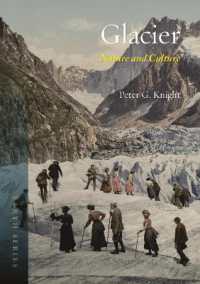- ホーム
- > 洋書
- > ドイツ書
- > Humanities, Arts & Music
- > Linguistics
- > german linguistics
Full Description
This book is the first comparative study of the novels written by five German-speaking women - Anna Gmeyner, Selma Kahn, Hilde Spiel, Martina Wied and Hermynia Zur Mühlen - who had to flee National Socialist Central Europe. Gmeyner, Spiel, Wied and Zur Mühlen found refuge in Britain and thus added - together with male colleagues such as Stefan Zweig and Robert Neumann - an important but rarely investigated new dimension to the British literary landscape. The aim of this study is to reassess the women refugee writers' narrative strategies and integrate their work within feminist literary studies. The author investigates the five writers' narrativisation of everyday life, used to subvert the dominant discourse, and their portrayal of the intersection between class, racial and gender oppression. She also shows their innovative ways of picturing the gendered tension between the experiences of exile and exile as a modernist metaphor as well as their search for ways to refute the Nationalist Socialist rewriting of history. The book situates the novels within the theoretical discussions surrounding exile studies, social history and women's writing.
Contents
Contents: Exile Studies in Germany, Austria and Britain - Feminist readings of women refugee novels - Portrayal of Jewish characters - Representations of Women - The possibilities of everyday life - Family Sagas as multicultural utopias - Respacialisation of politics - Alternative narrative space.





